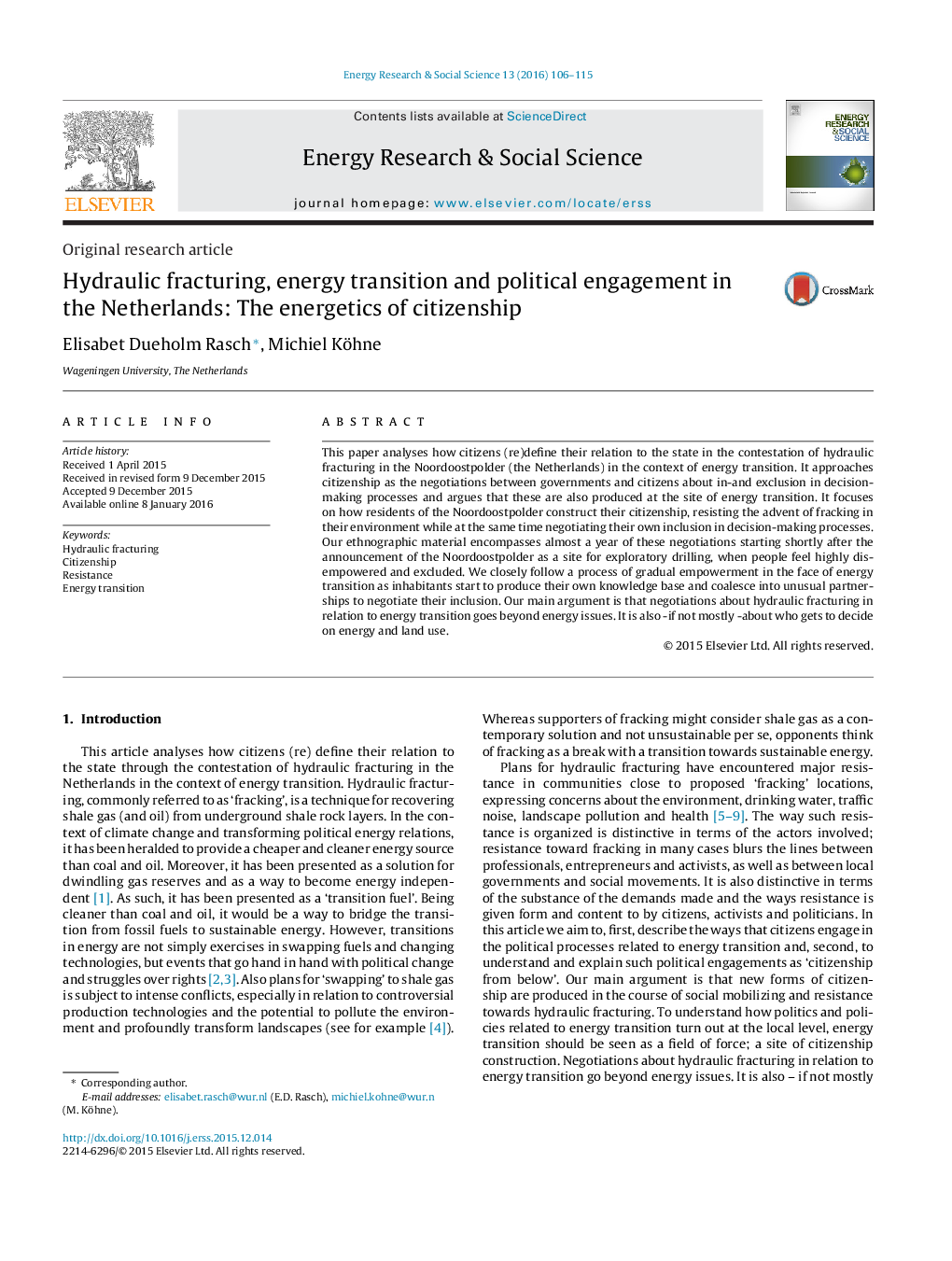| Article ID | Journal | Published Year | Pages | File Type |
|---|---|---|---|---|
| 6558268 | Energy Research & Social Science | 2016 | 10 Pages |
Abstract
This paper analyses how citizens (re)define their relation to the state in the contestation of hydraulic fracturing in the Noordoostpolder (the Netherlands) in the context of energy transition. It approaches citizenship as the negotiations between governments and citizens about in-and exclusion in decision-making processes and argues that these are also produced at the site of energy transition. It focuses on how residents of the Noordoostpolder construct their citizenship, resisting the advent of fracking in their environment while at the same time negotiating their own inclusion in decision-making processes. Our ethnographic material encompasses almost a year of these negotiations starting shortly after the announcement of the Noordoostpolder as a site for exploratory drilling, when people feel highly disempowered and excluded. We closely follow a process of gradual empowerment in the face of energy transition as inhabitants start to produce their own knowledge base and coalesce into unusual partnerships to negotiate their inclusion. Our main argument is that negotiations about hydraulic fracturing in relation to energy transition goes beyond energy issues. It is also -if not mostly -about who gets to decide on energy and land use.
Related Topics
Physical Sciences and Engineering
Energy
Energy (General)
Authors
Elisabet Dueholm Rasch, Michiel Köhne,
